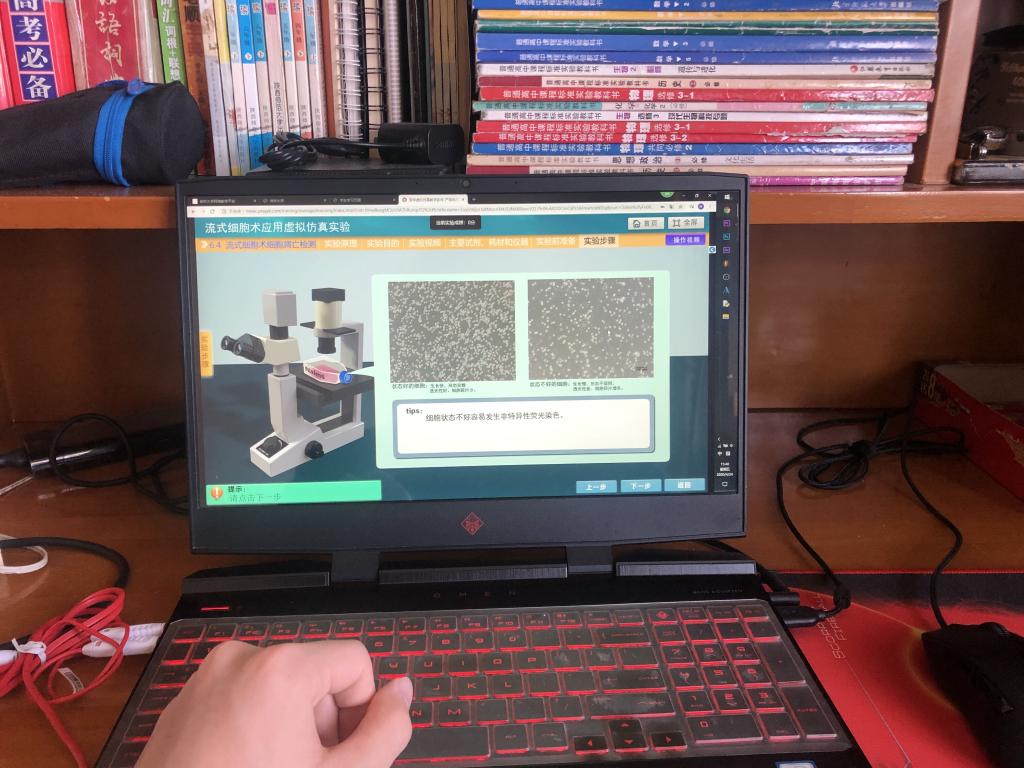Experimental teaching is an important part of the medical teaching system, which involves the cultivation of medical students' abilities such as practicalskills, comprehensiveapplication ofknowledge, scientific thinking,and innovation. During the epidemic,the faculty of theCollege of Basic Medical Scienceshasformulated a scientific virtual experiment teaching planafter discussion,whichmadefulluse of virtualonlineteaching resources to carry out experiment teaching and achieved good results. This effortwasin line with thepolicy of theMinistry of Education and Jilin Universityto“Suspend Classes Without Stopping Learning” and reduced the impact of the epidemic on experiment teaching.
To ensure the quality and progress of medical experiment teaching, each department has organized and plannedtheirexperiment teaching projects and existing virtual teaching resources according to theirsyllabuses. Each departmenthas tailor-madehandouts,presentationmaterials,in-classself-test questions, preview and discussion questions, experiment report templates, related literature,extendedknowledge, etc.for the courses.The departmentshavealso discussedcoursepreparation, teaching methods, scoring rules, etc.online collectively.
The virtual experiment teaching resources used in this teaching activity mainly consistedof two parts.The firstwasself-built virtual experimentteaching resources, utilized in subjectssuch as pathology, histology and embryology, human anatomy, and regional anatomyto carry out experiment teaching virtually.The secondwasthe utilization ofvirtual experiment teaching resource platforms nationwide. During epidemicprevention and control, Shanghai Mengzhilu Software Co., Ltd. and Chengdu Taimeng Software Co., Ltd.haveprovided free experimentteaching platformsfor all universities nationwide with online technical support.
Thanks to the College’s active communication and coordinationwith the companies,online virtual teachingwas realized forthe majority ofcourses through theseplatforms.Online virtual experiment projectsincludedconventional single virtual experiment projects, as well as micro lecture videos and video learning materials on thestandarduse of common instruments, such as videosonstandard operationoflaboratory rats, introduction to the use of pipettes,and operation tests. Thishascomplementedthe issue of insufficient training inpractical operationas studentswereunable to operate practically through online virtual teaching.
This semester’s online virtual experimentteaching involves about 100 experimental projectsdelivered by over 50 teachers. Students are divided into 12 classes, includingclinical medicine, stomatology, radiology, preventive medicine, pharmacy, nursing, etc., covering up to90%of experiment contents. The contents not covered are tasks that must be operated by students themselves.With the help ofonline teaching platforms for theoretical coursesand QQ groups, teachers have conductedthedistribution oflearning tasks, testing,Q&A,in-classinteraction,and otherteaching tasks,fullygraspingstudents'learning progressand mobilizing their enthusiasm to learn. Studentshave shownfull understanding and support forexperimentteachingto be conducted virtuallyduring the epidemicand participated actively invirtual experiment learning.
The College of Basic Medical Scienceshas attachedgreatimportancetothe research and exploration of virtual simulatedexperimental teaching modesand continuedtodevelop itsvirtual experimental projects and resources. Such efforts have been crucial to theonline virtual experiment teaching during the epidemic. In the future, the college willtakethis teaching activity as an opportunity tovigorouslyreformitsexperimental teaching modes,further enrichitsvirtual experiment resources, enhance the scientific and interactive nature of virtual experiments, and strive to apply for national-level virtual experiment teaching projects.
